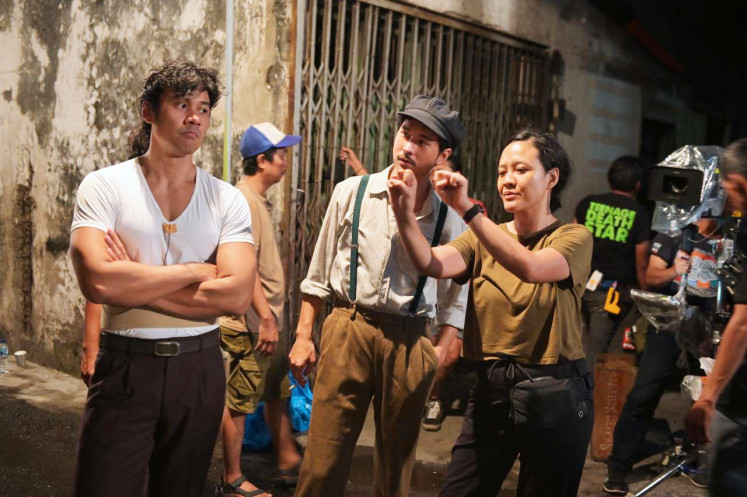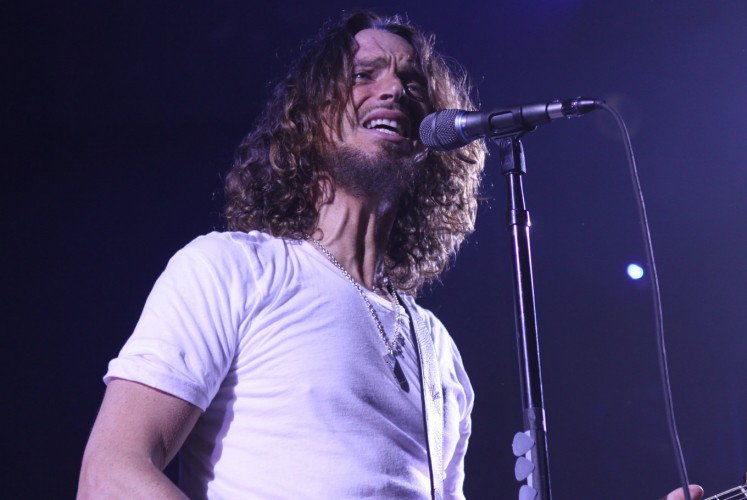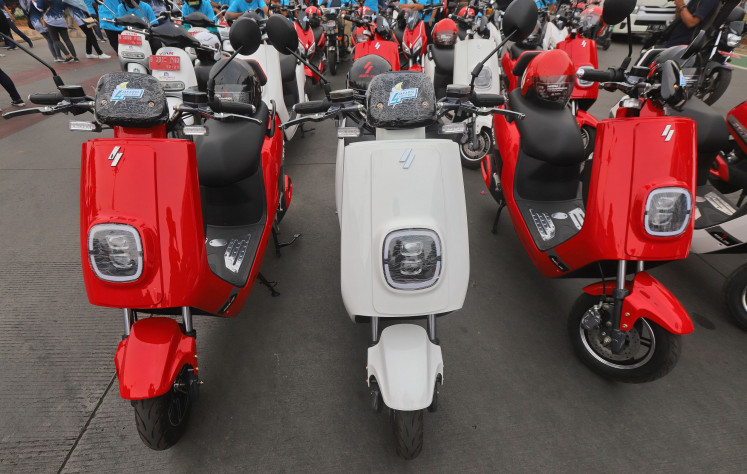Review: Gibson returns with true story of bravery in 'Hacksaw Ridge'
Change text size
Gift Premium Articles
to Anyone
 A still from "Hacksaw Ridge". (Summit Entertainment/File)
A still from "Hacksaw Ridge". (Summit Entertainment/File)
B
ased on a true wartime story in 1945, Mel Gibson’s Hacksaw Ridge is not a typical account of an American soldier’s journey.
The very thing that differentiates hero Desmond T. Doss (Andrew Garfield) from his fellow soldiers is his moral stance: to not bear any arms. He received a US Medal of Honor for his bravery in combat, saving more than 50 soldiers. But how did he manage to survive in the front, amid flying grenades and blazing flamethrowers without firing a single bullet?
As a devoted Seventh-Day Adventist, Desmond swears to never hold a gun, even when serving in the spring 1945 battle for Okinawa as a war medic. The rest of the infantry (Vince Vaughn, Sam Worthington, Luke Bracey) initially ridiculed Desmond for his pacifism, yet little did they know of the monumental protection that he would later offer them in the eye of the battle’s hellish whirlwind.
In his first film after a 10-year directing hiatus, Mel Gibson returns by taking Desmond's moral dilemma to manifest the true strength of selflessness. Yet through his staggeringly lifelike battle scenes, Gibson also reminds the audience that there is no vim and vigor in ground warfare.
The film sets off brutally, with what seems like an unending bloodshed as soldiers exchange fire while close-ups of deformed limbs and flesh appear now and then. Then it transitions – the scene, along with the music and air, shifts into a hazy horizon of Virginia’s meadow hills, where young Desmond and his brother Hal (Roman Guerriero) playfully chase and fight each other, additionally provoked by their abusive, alcoholic father (Hugo Weaving). Until, things get violent: Desmond struck his brother with a brick. Being able to understand the consequences as a young boy, Desmond realizes: “I could’ve killed him.”
(Read also: Bounty crew to strand on East Nusa Tenggara beach for documentary)
In line with a deeply religious upbringing convoyed by his mother (Rachel Griffiths), Garfield’s performance as Desmond, 13 years later, is convincing enough to show that he still bears the guilt of such act. Expressed through his growth into an upright, amiable young man dreamily in love with a hospital nurse (Teresa Palmer), he steers clear from any violence, and his character remains tinged by Garfield’s goofy, jocular charisma. As the “town’s favorite boy”, Garfield’s fine representation of Desmond can immediately draw the audience to like him, especially that he stands in striking contrast to his temperamental, war veteran father, who lives with a survivor’s guilt after seeing all of his friends die in battle – as played by Hugo Weaving, with ruggedness and dark intimacy.
Only until the basic military training scenes of the film did Desmond’s strict code of non-violence become greatly challenged; he refuses no duty, except for rifle practice. This angers the team and most importantly, Sergeant Howell, performed by Vince Vaughn, who is effortlessly inventive with his verbal humor whilst maintaining a stern, soldierly profile – all thanks to scriptwriters Robert Schenkkan and Randall Wallace.
Many attempts were made to discharge Desmond from the Army, even through the threat of court-martial. Luckily, Gibson leaves room to show the character development within Desmond’s dad, which eventually saves him with a legal loophole and sends him off to Okinawa.
(Read also: Scorsese's 'Silence' to get Oscar-qualifying release Dec. 23)
Finally, Gibson’s eye for a relentless scene of pure, suspenseful war action awakens. Desmond's heroism, that never misses a slim chance of saving a soul, comes to life in this final, epic battle chapter. Everyone who mistaken his pacifism for cowardice, was seriously wrong.
Although this film would keep the audience at the edge of their seats, they would probably leave the theater feeling slightly confused. What was the large-scale message that Gibson was giving? Foregrounding a peace-lover against a brutal war scene is a paradox for starters, and this juxtaposition does not seem to strengthen the idea that “pacifism wins the war” either. Larger factors, like strategy, weaponry or luck, mostly contributed to their victory. Of course, aiding the wounded is crucial as well, but it is hard to recognize the peace in all of this, especially when Gibson’s style of war storytelling, with exploding bombardments and spurting blood, rampage almost every single scene of the film.
Still, Hacksaw Ridge does not fail in astounding audience with the true story of the bravehearted Desmond Doss, who can inspire the masses with the notion that one does not have to sacrifice self-integrity to prove of his or herself. (mra/kes)









